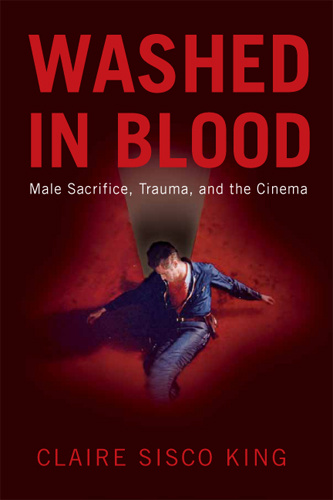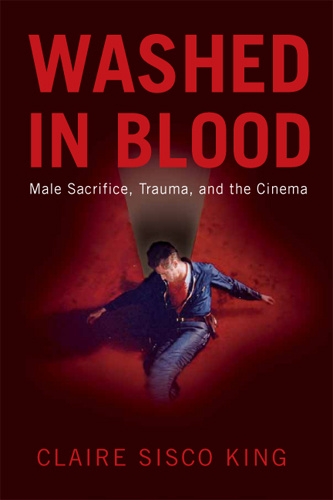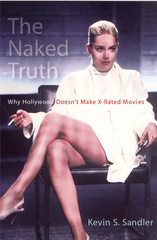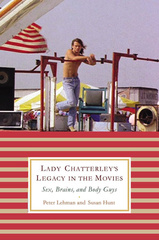Washed in Blood
Male Sacrifice, Trauma, and the Cinema
2013 Outstanding Book Award, Critical Cultural Studies division of the National Communication Association
Will Smith in I Am Legend. Leonardo DiCaprio in Titanic. Charlton Heston in just about everything.
Viewers of Hollywood action films are no doubt familiar with the sacrificial victim-hero, the male protagonist who nobly gives up his life so that others may be saved. Washed in Blood argues that such sacrificial films are especially prominent in eras when the nation—and American manhood—is thought to be in crisis. The sacrificial victim-hero, continually imperiled and frequently exhibiting classic symptoms of post-traumatic stress disorder, thus bears the trauma of the nation.
Claire Sisco King offers an in-depth study of three prominent cycles of Hollywood films that follow the sacrificial narrative: the early–to–mid 1970s, the mid–to–late 1990s, and the mid–to–late 2000s. From Vietnam-era disaster movies to post-9/11 apocalyptic thrillers, she examines how each film represents traumatized American masculinity and national identity. What she uncovers is a cinematic tendency to position straight white men as America’s most valuable citizens—and its noblest victims.
Clear, concise, and compelling, Washed in Blood examines the recurring theme of injured national masculinity in cinema. Written in flowing prose, this book is not only excellent, but important.
This is a timely book that alerts readers to the dangers of masculinist sacrificial films—seemingly innocuous entertainment fare. King deals with the complex logics of trauma, sacrifice, and cinema, analyzing films that at once indulge audiences with the experience of vicarious trauma and suggest the problematic possibility of leaving traumatic injury behind.
A beautifully rendered and insightful analysis of a major strand within contemporary American films. Washed in Blood is an important work that sheds light on the complex interrelationship between masculinity, national culture, and trauma.
Clear, concise, and compelling, Washed in Blood examines the recurring theme of injured national masculinity in cinema. Written in flowing prose, this book is not only excellent, but important.
This is a timely book that alerts readers to the dangers of masculinist sacrificial films—seemingly innocuous entertainment fare. King deals with the complex logics of trauma, sacrifice, and cinema, analyzing films that at once indulge audiences with the experience of vicarious trauma and suggest the problematic possibility of leaving traumatic injury behind.
A beautifully rendered and insightful analysis of a major strand within contemporary American films. Washed in Blood is an important work that sheds light on the complex interrelationship between masculinity, national culture, and trauma.
CLAIRE SISCO KING is an assistant professor in the department of communication studies at Vanderbilt University; she also teaches in the film studies program. Her work has been published in numerous communication and media studies journals.
Introduction
1. Reel Presence, Sacrifice, and the Cinema
2. Unhinged Heroes and Alpha Traumas
3. Free Falls in the 1990s
4. Remakes, Resurrections, and Sacrificial Returns
Epilogue: Big-Screen Memories
Notes
Selected Bibliography
Index







